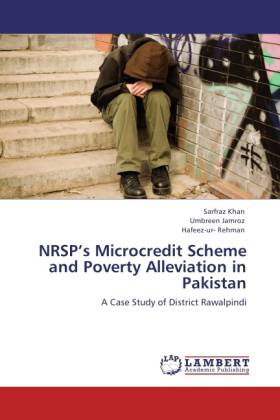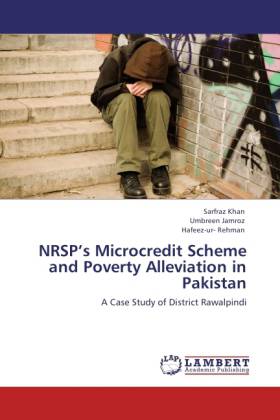
- Afhalen na 1 uur in een winkel met voorraad
- Gratis thuislevering in België vanaf € 30
- Ruim aanbod met 7 miljoen producten
- Afhalen na 1 uur in een winkel met voorraad
- Gratis thuislevering in België vanaf € 30
- Ruim aanbod met 7 miljoen producten
Zoeken
NRSP's Microcredit Scheme and Poverty Alleviation in Pakistan
A Case Study of District Rawalpindi
Sarfraz Khan, Umbreen Jamroz, Hafeez-Ur- Rehman
Paperback | Engels
€ 48,45
+ 96 punten
Omschrijving
Fighting against poverty is one of the core objectives of United Nation Development Programme (UNDP) under the project the Millennium Development Goals (MDGs). The potential to gain economic opportunities depends on the scale of access to monetary services. Micro finance made possible the access of the poor to the economic opportunities and enhanced their income in order to come out of the poverty cycle. The main objective of the study was to explore the impact of micro credit provided by NRSP on poverty alleviation in Rawalpindi, Pakistan. A survey with the help of purposive sampling was conducted and 100 borrowers of NRSP were selected as respondent from five villages. The result shows that Micro credit had made a significant difference in improving income levels of the borrowers. Micro credit is an effective tool which works as a mediator towards the improved livelihood of the loonies and also enhances their income. Borrowers were satisfied by the utilization of micro credit in a productive and purposeful way. People in rural areas have been benefiting from micro credit scheme.
Specificaties
Betrokkenen
- Auteur(s):
- Uitgeverij:
Inhoud
- Aantal bladzijden:
- 76
- Taal:
- Engels
Eigenschappen
- Productcode (EAN):
- 9783847332107
- Verschijningsdatum:
- 29/12/2011
- Uitvoering:
- Paperback
- Formaat:
- Trade paperback (VS)
- Afmetingen:
- 152 mm x 229 mm
- Gewicht:
- 122 g

Alleen bij Standaard Boekhandel
+ 96 punten op je klantenkaart van Standaard Boekhandel
Beoordelingen
We publiceren alleen reviews die voldoen aan de voorwaarden voor reviews. Bekijk onze voorwaarden voor reviews.











